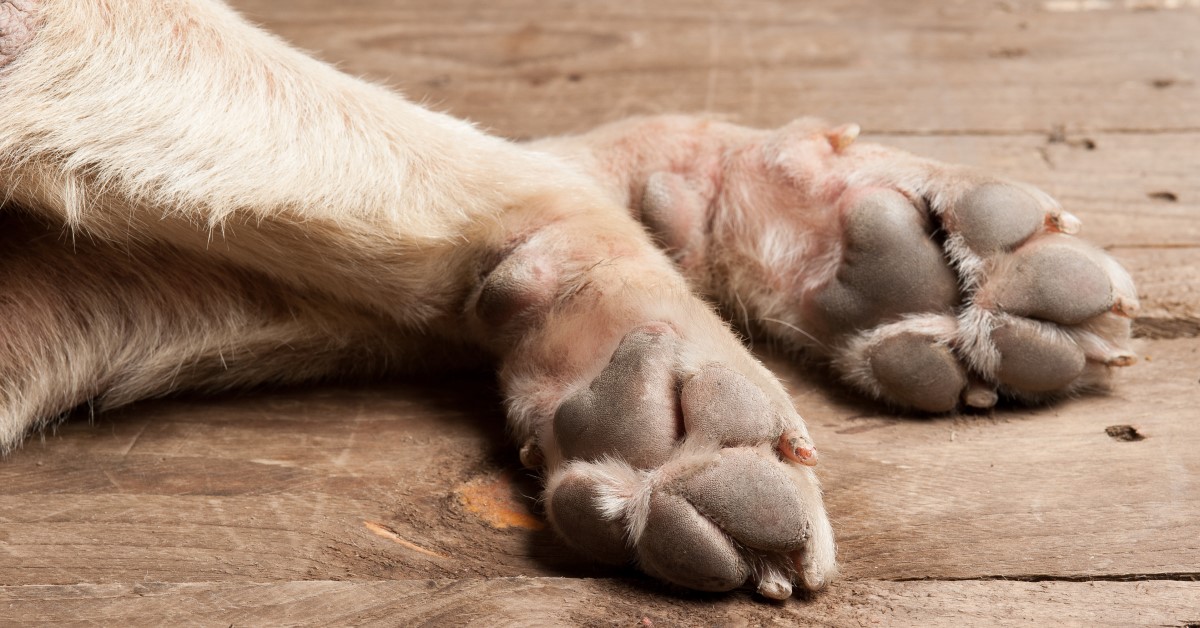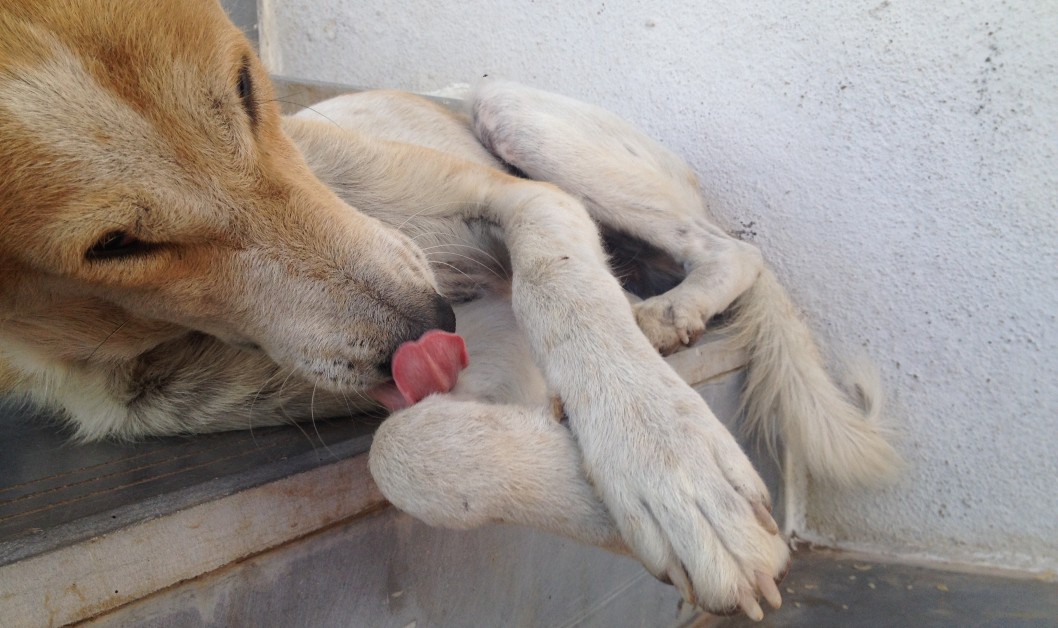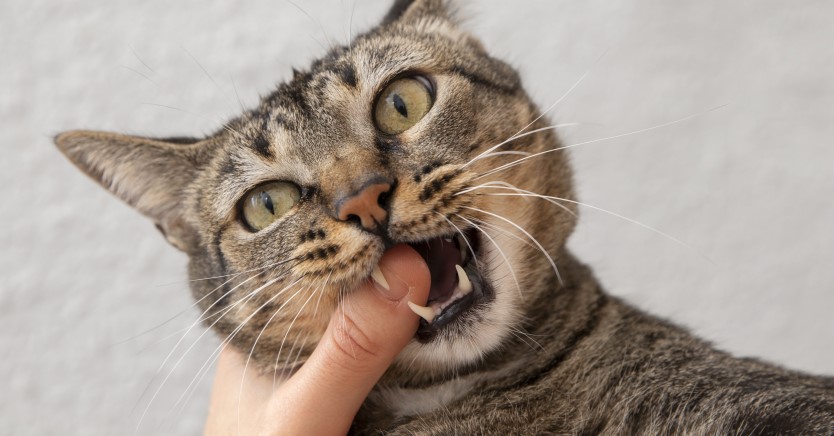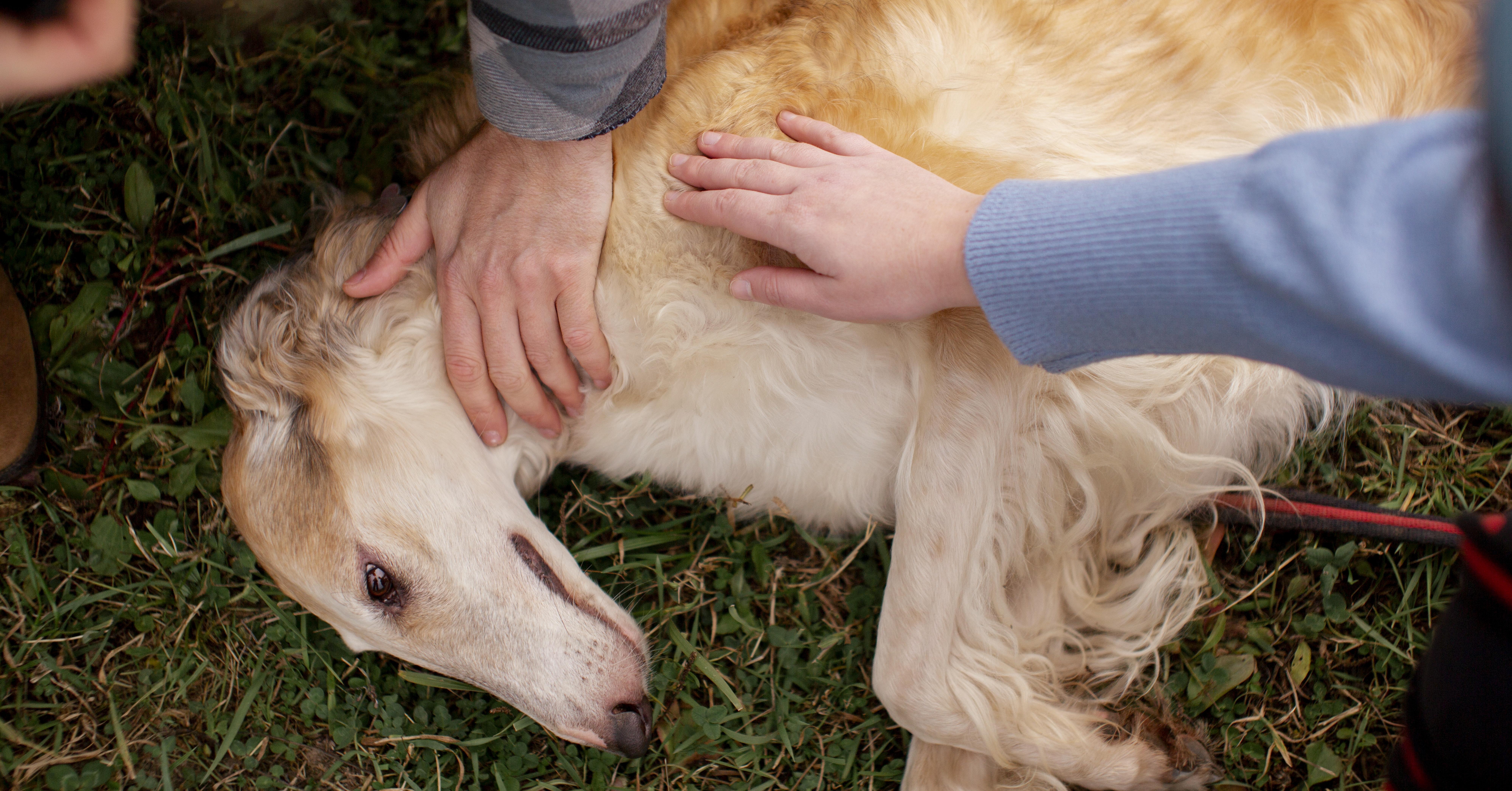Why Is My Dog Licking His Paws So Much?
Paw licking in dogs can have a variety of causes, some of which might require treatment.

You're probably familiar with the image of a cat licking its paw and then using that paw to wash itself. But what does it mean when your dog takes up the paw licking habit? Sometimes it means nothing beyond basic hygiene -- and sometimes it points to an underlying health issue that calls for professional attention. Let's step into the world of canine paw licking to examine what's normal behavior, what isn't, and when to consider contacting your veterinarian for an appointment.
Why Dogs Lick Their Paws
It's actually quite normal for dogs to lick their paws from time to time. Although you may associate self-grooming primarily with cats, dogs like having clean paws as well. For example, you might notice your dog licking its paws after it comes in from a day at the beach or in the mud. Additionally, a dog who smells a tasty bit of stray food on its paws won't hesitate to lick it off.
Paw licking also has soothing effects on dogs. If your dog is winding down for the evening or getting over a stressful event, it may indulge in a bit of paw licking as a form of relaxation.
When Dog Paw Licking Might Spell Trouble
Not all incidents of dog paw licking can be dismissed as routine. Sometimes dog paw licking can point toward a physical or emotional issue that needs veterinary attention. If your dog has started licking its paws all the time, you might need to get it checked for the following potential problems.
- Skin irritation - A variety of irritants can make your dog's paws inflamed, itchy, or painful. Examples include everything from poison oak, bacterial infections, and parasitic infections to exposure to chemicals such as road salts or pesticides. Your dog may obtain relief by licking at the irritated skin.
- Painful medical conditions - As dogs grow older, they often suffer from age-related complaints such as arthritis. A senior dog that licks its paws all the time may be experiencing chronic joint pain, especially if it also displays signs of stiffness or mobility problems. Growths such as tumors or cysts may also prompt frequent paw licking.
- Injuries - Since dogs use licking as a form of self-care for pain, you may expect your dog to lick obsessively at an injured paw. If you also see signs of damage, bleeding, or lameness, it's time to call the veterinarian.
- Anxiety - Paw licking in dogs can serve as a self-soothing mechanism to ease anxiety or emotional stress. For instance, your dog may lick its paws in response to separation anxiety if it isn't used to being parted from you for any length of time.
- Boredom - If your dog licks its paws all the time, it might actually be experiencing the opposite of anxiety: a lack of things to think about or respond to. Boredom can affect dogs as well as humans -- and for better or worse, paw licking counts as something to do.
- Obsessive-compulsive disorder - Dogs can sometimes develop obsessive-compulsive disorder, or OCD. If your dog has OCD, compulsive paw licking could be one manifestation of this emotional problem.
Veterinary Solutions for Dog Paw Problems
You shouldn't ignore your dog's excessive paw licking. If there's an underlying disease or injury triggering the behavior, you need to get that issue treated before it can cause complications. Even if the behavior is purely psychologically motivated, obsessive licking at a paw can create a damaged skin lesion called a lick granuloma. If bacteria enters the damaged skin, an infection may occur.
Fortunately, a skilled, experienced veterinarian can help you solve your dog paw problems. A combination of laboratory testing, diagnostic imaging, and simple visual inspection enables your vet to diagnose many illnesses, irritations, and injuries quickly and easily. Depending on the underlying cause of your dog's paw issues, your vet may administer medication, recommend environmental or lifestyle changes, or even prescribe a special diet to deal with a food-based allergy.
In the absence of a physical cause, your veterinarian may look into psychological reasons for your dog's obsessive paw licking. Has your dog been exposed to loud sounds, hectic household activity, or other anxiety triggers recently? If so, you might need to remove those sources of anxiety or create a safe, quiet space in the home that your dog can retreat to. Your vet can also recommend training and desensitization routines to help your dog overcome separation anxiety.
As is often the case in humans, obsessive-compulsive behavior in dogs can stem from a biochemical imbalance. If your dog's paw licking is related to OCD, don't be too surprised if your vet prescribes medications such as fluoxetine or clomipramine to correct the problem.
Give Your Pet's Paws the TLC They Deserve
Whether your dog's paw licking habit stems from an actual problem in the paw itself or an emotional/psychological issue, you owe it to your best friend to get the problem detected and seen to as soon as possible. Schedule a veterinary exam, describe what you've noticed to your vet in detail, and get the answers to any questions or concerns you may have about medical treatment and/or home care to relieve the trouble. These simple steps can help both you and your dog feel a whole lot better!
Ready to start saving money on pet wellness care?
Then take a look at Mint Wellness, the pet wellness plan that provides fast reimbursement on routine pet care. Save on vaccinations, wellness exams, preventatives, dental, and more!
Learn More


